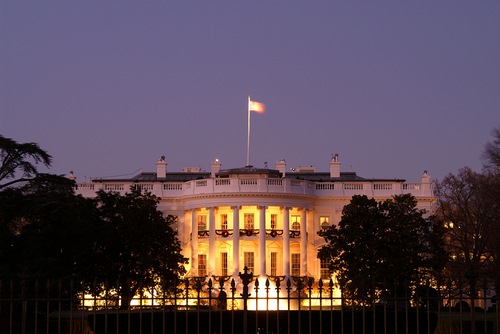 On Wednesday evening, a group of senators gathered as New York City’s power grid was rendered useless by a cyberattack – thankfully the attack was only a scenario-based demonstration for politicians. The details of the faux attack scenario, which the White House hopes will convince Congress to pass legislation giving the government more control over privately owned systems, are classified at this time.
On Wednesday evening, a group of senators gathered as New York City’s power grid was rendered useless by a cyberattack – thankfully the attack was only a scenario-based demonstration for politicians. The details of the faux attack scenario, which the White House hopes will convince Congress to pass legislation giving the government more control over privately owned systems, are classified at this time.
The event was attended by a combination of politicians and high ranking officials from the Obama Administration. Although all 100 senators were invited to the presentation, only 25 senators attended.
Harry Reid, the Senate Majority Leader from Nevada, is in favor of the new legislation and said the following of the hypothetical scenario:
“The demonstration last night dealt with electricity, but it could be banking, it could be our hospitals. We have to recognize that we now have new enemies in the world. Not enemies that are flying airplanes and dropping bombs necessarily or shooting us with bullets, but they are prepared to do something that is so damaging to our economy and we were given that illustration last night.”
On February 14th, Connecticut Independent Senator Joe Lieberman introduced legislation that directs the Homeland Security to regulate computer network security for businesses that are deemed critical (i.e. financial, utility, and transportation companies) to the economy. In addition to Lieberman’s bill, there is alternative bill authored by eight Republicans that hopes to avoid new regulations and instead incentivize the sharing of network security information.
During a House hearing earlier on Wednesday, Comcast and AT&T voiced opposition to Lieberman’s bill and stated that they would prefer to voluntarily share information related to cyber threats. Edward Amoroso, AT&T’s chief security officer, indicated a belief that the new regulations could stifle innovation:
“Such requirements could have an unintended stifling effect on making real cybersecurity improvements. Cyber adversaries are dynamic and increasingly sophisticated, and do not operate under a laboriously defined set of rules or processes.”
During the State of the Union address in January, President Obama stressed that he feels Congress should pass cyber security legislation in the near future.
Do you feel that government should regulate the cyber security of the private sector with new laws or that the new regulations could impede innovation in this crucial area making our country more susceptible to potential attacks?



